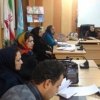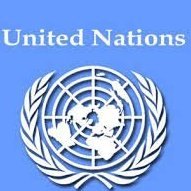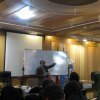
Deals linked to settlements in occupied territories could be ‘criminal,’ UN expert warns
Deals linked to settlements in occupied...
 Addressing journalists at UN Headquarters, the Special Rapporteur on human rights in the occupied Palestinian territories, Richard Falk, reiterated that the settlements are unlawful according to the Fourth Geneva Convention.
Addressing journalists at UN Headquarters, the Special Rapporteur on human rights in the occupied Palestinian territories, Richard Falk, reiterated that the settlements are unlawful according to the Fourth Geneva Convention.
He said that his office has been trying to inform companies, among them the European banking group Dexia and the United States-based real estate company Re/Max, that continuing their practices in the territories could be “problematic.”
It was essential, Mr. Falk stressed, to encourage corporations to withdraw their profit-making activities from the settlements.
He noted that the Government of the Netherlands has discouraged investments by Dutch companies in or servicing the settlements in the West Bank, and it does not provide assistance to Dutch companies that want to engage in settlement activities.
In this context, the engineering firm Royal HaskoningDH recently terminated a project in East Jerusalem.
The move by the Government is a “real breakthrough,” Mr. Falk said, in trying to build consensus around the conclusion that it is inappropriate to continue to be involved in illegal settlement-related activities in the occupied territory.
The concept was among three main points that Mr. Falk made yesterday during his briefing to the General Assembly’s Third Committee, which deals with social, humanitarian and cultural issues.
In his report, Mr. Falk also outlined a model of legal analysis to assess the probability of liability, including international criminal liability, for corporate complicity in breaches of international law related to illegal settlements.
“I encourage Member States and civil society to use this model as a template to examine other companies engaged in similar activities related to the illegal settlement enterprise,” he said in a news release.
The question of corporate complicity addressed in the Special Rapporteur’s report follows on from the call he made last year at the General Assembly for Member States as well as civil society to boycott Israeli and international businesses profiting from Israeli settlements in occupied Palestine.
“I strongly encourage all business to use the UN Guiding Principles on Business and Human Rights as a guide for how to conduct their business, and to exercise due diligence to ensure they do not contribute to human rights violations and abuse, and in order to avoid responsibility for complicity in breaches of international law,” he said.
Among other issues, Mr. Falk recommended that the General Assembly seek an advisory opinion from the International Court of Justice (ICJ) as to the status and general legality of prolonged occupation.
He noted that while there were no expectations that Israel would comply with such an advisory opinion, or that it would automatically qualify for enforcement by the UN Security Council, it would be a genuine determination with careful legal reasoning from some of the best legal minds in the world.
“It should be treated as authoritative guidance on the nature of international laws bearing on a situation of this sort,” Mr. Falk said.
Independent experts, or special rapporteurs, are appointed by the Human Rights Council to examine and report back on a country situation or a specific human rights theme. The positions are honorary and the experts are not UN staff, nor are they paid for their work.
UN News Centre
 Reload
Reload


